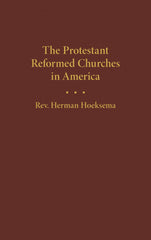Your cart is empty now.

Gospel Truth of Justification - A Review (3): Comforting and Confessional
Last time we ended intending to take up the matter of assurance of justification. To doubt whether one is justified is to doubt whether one is saved. In the name of a “quest for full assurance,” reputedly Reformed theologians promote a doctrine of doubt.[i] These reputedly Reformed theologians promote the Puritan and nadere reformatie (further reformation) theology of doubt. They deny that faith is, essentially, assurance.
I quote again from Mark Jones' book, Antinomianism: Reformed Theology's Unwelcome Guest, on the topic of assurance. He writes,
Following the outline of questions provided by Joel Beeke, there are a number of areas in the doctrine of assurance where the Puritans recognized the need to be specific. The first question considers whether the seed of assurance is embedded in faith. Faith and full assurance of faith are not strictly synonymous. Our faith does not save; only Christ saves, who is the object of faith. Of course, there is always some degree of assurance in faith, but the main issue is whether full assurance is of the essence of faith. As Beeke notes, “They differentiate between the faith of adherence to Christ and the faith of assurance (or evidence) in Christ, whereby the believer knows that Christ has died specifically for him.”[ii]
Mark Jones is a disciple of influential Puritan theologian Dr. Joel R. Beeke.[iii] Beeke is a proponent of the Puritan—not Reformed—doctrine of assurance, that is, assurance by quest. The word “quest” in the title of Beeke's book on assurance, The Quest for Full Assurance, is telling. A quest, according to the dictionary, is a “long or arduous search for something.” To embark on a quest for assurance, is to work for assurance, making the Puritan doctrine of assurance a form of salvation by works.
Both Beeke and Jones appeal to a conditional covenant in defense of their doctrine of assurance. Writes Jones in his chapter on assurance, “The antinomians could not give a role to good works in assurance, other than to say that they are frequently dangerous signs, because of their denial of conditions in the covenant of grace, their view that Christ repented, believed, etc., for his people, and their view that God sees no sin in his people” (emphasis mine, AJC).[iv]
Beeke states,
From the believer's side, however, there is in Puritan thought also a conditional dimension of the covenant which plays a critical role in assurance. “The absolute promises are laid before us as the foundation of our salvation....and the conditional as the foundation of our assurance.” The conditional promises are inseparable from the believer's daily renewal of the covenant by means of prayer, meditation, and worship. Particularly the sacraments serve as important seasons for covenant-renewal. “To gather up assurance from the conditions of the covenant,” wrote Thomas Blake, “is the highest pitch of Christianity.”[v]
In the Beeke-Jones schema of assurance, flowing from a belief in a conditional covenant, the decisive factor in the believer obtaining assurance is the working (questing) of the believer to gather up assurance.
In comforting contrast to the Puritan doctrine of assurance is chapter twelve, Assurance of Justification, in David Engelsma's Gospel Truth of Justification. In the first paragraph of that chapter, he writes,
An aspect of justification that is often overlooked is the assurance of its righteousness and therefore of salvation. The reality of justification includes that the Spirit of the justifying Father of Jesus Christ assures everyone whom the Spirit justifies that he is justified. This assurance is an essential element of the act of justification itself. Not only is the elect, believing sinner justified, but he also knows that he is justified. In fact, the conjunction “but” in the preceding sentence is misleading. It can leave the impression that justification is one thing and assurance of justification another. The truth is that justification is, essentially is, the assurance of justification by faith alone. If the believing sinner is not sure of his righteousness with God, he has not been justified by faith.
Throughout this chapter the author, in response to the “Puritan theology of doubt” (p. 213), demonstrates how the “Reformed confessions....plainly teach justification as the assurance—the personal assurance—of forgiveness and righteousness” (p. 217). Answer 21 of the Heidelberg Catechism, for example, in defining faith, “the faith by which one is justified, makes the personal assurance of justification an element of faith's essence” (p. 217). In part Answer 21 states, “True faith is....an assured confidence, which the Holy Ghost works by the gospel in my heart; that not only to others, but to me also, remission of sin, everlasting righteousness, and salvation are, freely given by God, merely of grace, only for the sake of Christ's merits.” Engelsma also brings Q&A 59 and A 60 of the Heidelberg Catechism along with Article 23 of the Belgic Confession to bear on the topic of assurance.
At the end of the chapter Engelsma issues a sharp warning.
Whoever charges Calvin and the Reformation with error on this doctrine [that justification by faith alone is assurance of righteousness with God, p. 222], taking his stand with Puritanism and the further reformation, finds himself in agreement with Rome on one of the most fundamental issues of the sixteenth-century Reformation of the church, as this issue is authoritatively settled in all the Reformed, indeed Protestant, creeds. His error is nothing less than a denial of justification by faith alone, the very heart of the gospel of grace (p. 223).
Not only in the chapter about assurance of justification, but throughout the book, the doctrine of justification by faith alone is defended by examining the Reformed confessions. This is important because the fiercest opponents of justification by faith alone arise from within Reformed and Presbyterian churches. And these opponents are Reformed officebearers who are bound to the Belgic Confession, Heidelberg Catechism and Canons of Dordt by virtue of signing the Formula of Subscription, just as Presbyterian churches have a similar document binding their officebearers to the Westminster standards.
Engelsma copiously uses the Reformed confessions, in fact he begins with the confessions, in defense of justification by faith alone, in chapters 5-7 especially. This is commendable. Constantly, the Reformed believer must be reminded of the contents and value of these confessions. And, “with the confessions, the Reformed laity are able to discern and withstand heretical teachings” (p. 71).
Next time, Lord willing, I hope to look at the instructive value of the book.
___________________
[i] Jones, Mark. Antinomianism: Reformed Theology's Unwelcome Guest? (Phillipsburg, NJ: P&R Publishing Company, 2013), 106.
[ii] Ibid., 101, 102.
[iii] Dr. Joel R. Beeke is pastor of the Heritage Reformed Congregation of Grand Rapids, MI, founder and president of the Puritan Reformed Theological Seminary in Grand Rapids and author of The Quest for Full Assurance: The Legacy of Calvin and His Successors (Banner of Truth, 1999). In that book Beeke argues that "full assurance of personal salvation constitutes the well-being or fruit of faith rather than the essence of faith" (p. 276).
[iv] Jones, 109.
[v] Joel Beeke, in an address entitled "Assurance of Faith," given to the Student Society and found on the website of the Free Reformed Churches of North America. http://frcna.org/resources/student-society-speeches.
___________________
This article was written by Aaron Cleveland, a member of Hope Protestant Reformed Church in Grand Rapids, Michigan. If you have a question or comment for Aaron, please do so in the comment section.
____________________
The content of the article above is the sole responsibility of the article author. This article does not necessarily reflect the opinions and beliefs of the Reformed Free Publishing staff or Association, and the article author does not speak for the RFPA.

Donate
Your contributions make it possible for us to reach Christians in more markets and more lands around the world than ever before.
Select Frequency
Enter Amount










